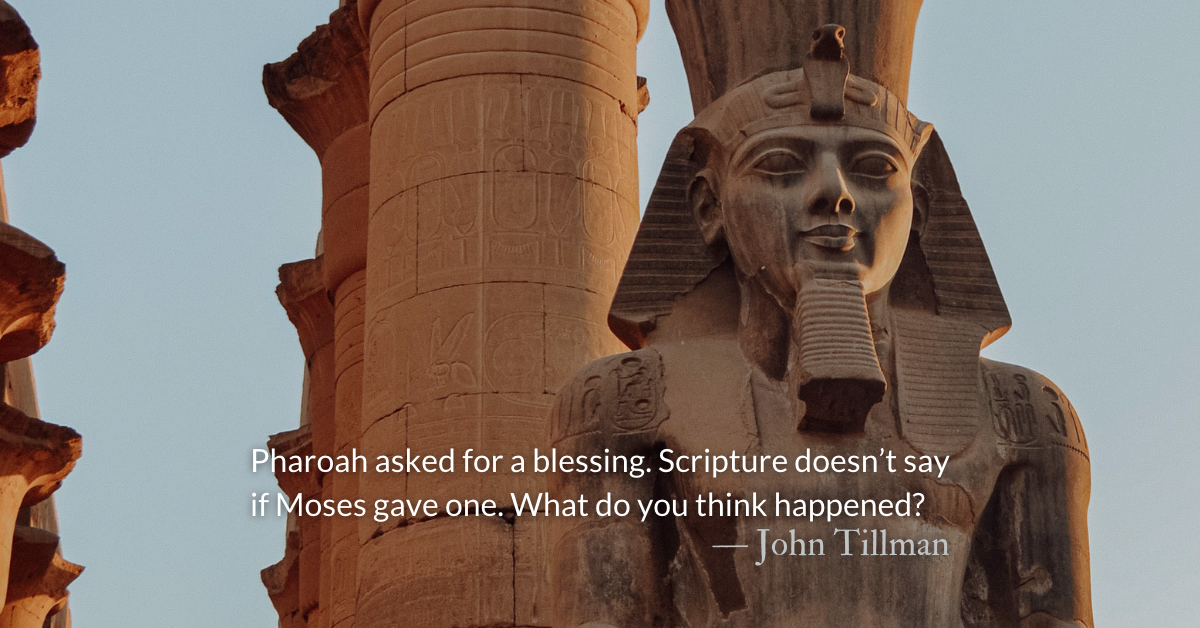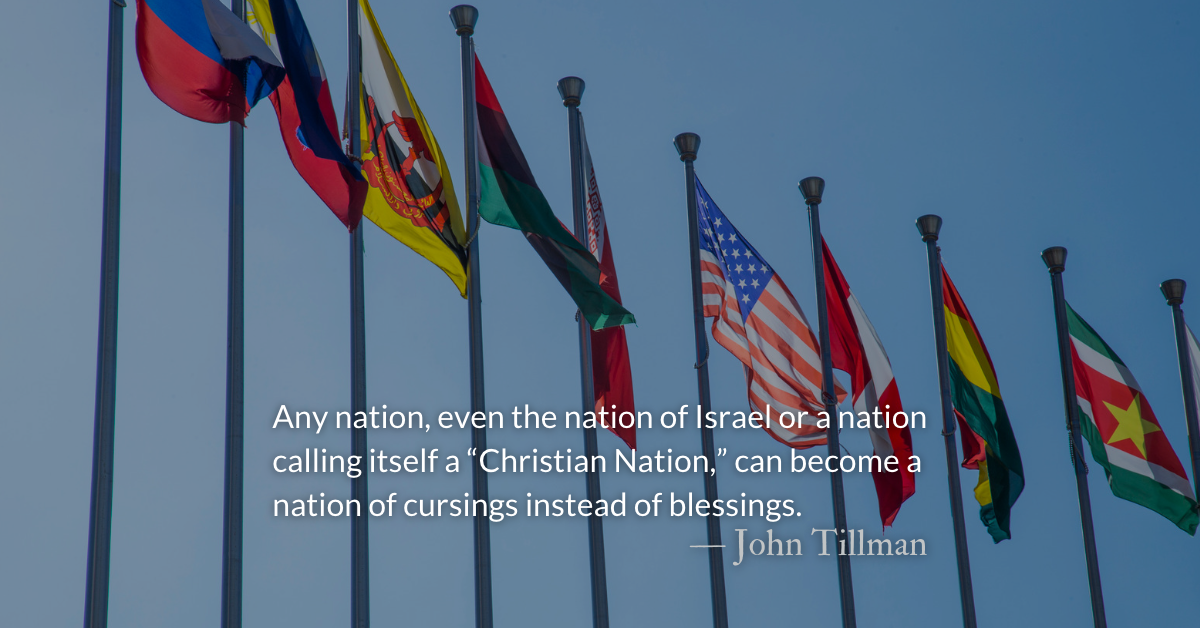Scripture Focus: Exodus 12.28-32
28 The Israelites did just what the Lord commanded Moses and Aaron.
29 At midnight the Lord struck down all the firstborn in Egypt, from the firstborn of Pharaoh, who sat on the throne, to the firstborn of the prisoner, who was in the dungeon, and the firstborn of all the livestock as well. 30 Pharaoh and all his officials and all the Egyptians got up during the night, and there was loud wailing in Egypt, for there was not a house without someone dead.
31 During the night Pharaoh summoned Moses and Aaron and said, “Up! Leave my people, you and the Israelites! Go, worship the Lord as you have requested. 32 Take your flocks and herds, as you have said, and go. And also bless me.”
Reflection: Pondering the Plague
By John Tillman
Pharaoh released the Israelites and asked Moses for a blessing. Previously, Pharaoh threatened his life if Moses ever saw his face again. What happened in between is the tenth plague…
No one has all the answers to difficult passages like this one. Even if we did, 400 words wouldn’t cover them. Today, we aren’t giving answers. We are asking questions. Some questions refer to the scripture and some to our hearts. Ponder these questions and additional questions of your own in prayer.
It’s not enough to simply say, “Well, the Egyptians deserved it. They are oppressors.” Moses is a genocide survivor. Moses’s Pharaoh is likely the son of the ruler who killed many young men of Moses’s age. A generation of his peers was wiped out. Now the nation that killed that generation would lose a generation of its own. Yet, instead of being satisfied or happy about this, Moses leaves “hot with anger” after announcing the plague. (Exodus 11.8) Why? Who is Moses angry with? Why isn’t retributive justice enough? Why doesn’t “an eye for an eye” satisfy?
What makes you “hot with anger”? Do you celebrate your enemy’s pain and suffering?
Moses survived Egypt’s slaughter of innocents. Jesus escaped Herod’s slaughter of innocents by fleeing to Egypt. The same nation that wiped out a generation of Israelites sheltered Jesus when his life was threatened. They played their part in bringing the gospel to the world and later became a bastion of Christianity in Africa.
Is there anyone/anything you have written off as irredeemable that may still have a part to play to benefit the gospel?
Over and over, Pharaoh was tested and warned of escalating disasters that proved true every time. Surely Pharaoh thought of his son when Moses announced the plague. Why did Pharaoh not believe? Why did he not give in?
Is there anything about which you are refusing to submit to God?
After all this conflict, and especially after losing his son, why would Pharaoh ask for a blessing from Moses? Next to Pharaoh’s request, the Logos Bible I use has a link to Genesis 27.34 in which Esau cries out for a blessing from his father. These two moments are connected. Pharaoh asked for a blessing. Scripture doesn’t say if Moses gave one. What do you think happened?
Is there anyone from whom you are withholding a blessing?
Divine Hours Prayer: The Request for Presence
Show your goodness, O Lord, to those who are good and to those who are true of heart. — Psalm 125.4
Today’s Readings
Exodus 11-12.21 (Listen 9:08)
Matthew 22 (Listen 4:56)
Read more about Idol-Destroying Plagues
The plagues systematically and categorically destroyed everything that Egypt trusted in and worshiped.
Read more about Testing Before Judgment
The slowly escalating nature of the plagues provides Pharaoh with off-ramps to escape further judgment.






